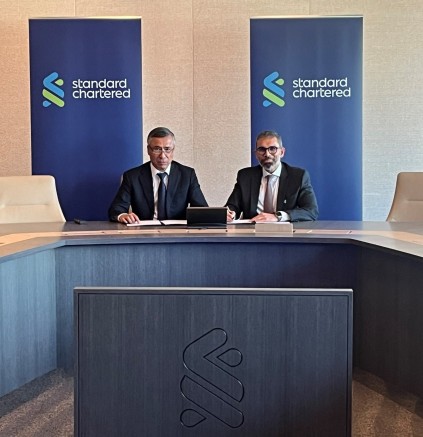The European Bank for Reconstruction and Development (EBRD) responded to the coronavirus pandemic challenges in Central Asia’s most populated country by pledging US$521 million (€429 million) through 18 projects in various sectors of the national economy. The EBRD resources were used to support the country’s banking sector and SMEs access to finance, upgrade key infrastructure and promote the development of renewable energy.
Following the outbreak of the pandemic, the EBRD concentrated its efforts on providing much needed liquidity to the domestic financial institutions, supporting their lending to small businesses and trade finance activity. A trade finance package of US$ 220 million was made available to National Bank of Uzbekistan, Asaka Bank, Ipoteka Bank and UzPromstroybank, which helped Uzbek exporters and importers mitigate the disruptions that severe market conditions caused in trade and supply chains. Bank Ipak Yuli, the country’s major privately owned lender, also received a trade finance limit increase of US$ 5 million under the EBRD’s Trade Facilitation Programme.
The Bank paid special attention to small and medium-sized businesses (SMEs) access to finance as they create about 50 per cent of GDP and employ almost 80 per cent of the workforce. SME ear-marked loans collectively worth almost US$ 100 million were provided to Asaka Bank, Ipoteka Bank, Bank Ipak Yuli and Davr Bank and a US$ 40 million loan was provided to UzPromstroybank for on-lending to Uzbekistan’s growing private sector.
Loans of up to US$12 million under the EBRD’s Central Asian Women in Business programme were extended to Ipoteka Bank and Davr Bank to support women-led SME businesses across Uzbekistan; and 36 immediate digital transition advisory projects focusing on e-learning, e-marketing, cost optimisation, digitalisation and online sales were offered to SMEs in sectors affected by the lockdown measures.
To support Uzbekistan’s green transition, the Bank financed its first privately owned and competitively tendered renewable energy project in the country by extending an equity bridge loan for the construction of a 100 MW solar photovoltaic plant in the Navoi region of Uzbekistan. By supporting this project, the EBRD contributed to Uzbekistan’s objective to generate 8 MW of solar and wind power by 2030.
The EBRD welcomed the announcement by the government of Uzbekistan of the country’s first Public Private Partnership (PPP) tender for wind power, which will facilitate the development of a 100 MW power generation facility. This was an important milestone under the Memorandum of Understanding signed between the EBRD and the authorities of Uzbekistan. Additionally, loans worth US$ 150 million were provided to support vital upgrades of electricity and water supply infrastructure in the Surkhandarya region.
Over US$ 55 million were invested into various private sector projects. These included a US$ 40 million equity investment in the country’s leading food chain Korzinka, which was the Bank’s first equity investment in the country for a decade, a loan of US$ 12.5 million loan to fertiliser producer Indorama Kokand and a loan of US$ 2.8 million in Uzbek soum equivalent to a leading domestic producer and trader of disposable medical goods Healthline. The latter will use the funds to launch a production line dedicated to the manufacture of single-use medical gloves in order to meet the demand for affordable medical goods fuelled by the outbreak of the Covid-19 pandemic.
EBRD Head of Uzbekistan Alkis Drakinos said: “The EBRD was the first international financial institution to adopt emergency measures to address the economic impact of the pandemic in March last year. Our funds were used to replenish the working capital of companies, to improve the liquidity of financial institutions and to support trade and SMEs access to finance. We also supported Uzbekistan’s bid to reduce the intensity of its carbon emissions and to develop up to 1 GW of renewable power generation capacity to meet the increasing demand for electricity in the country by helping to replace the country’s ageing power sector infrastructure and to establish an effective regulatory framework.”











